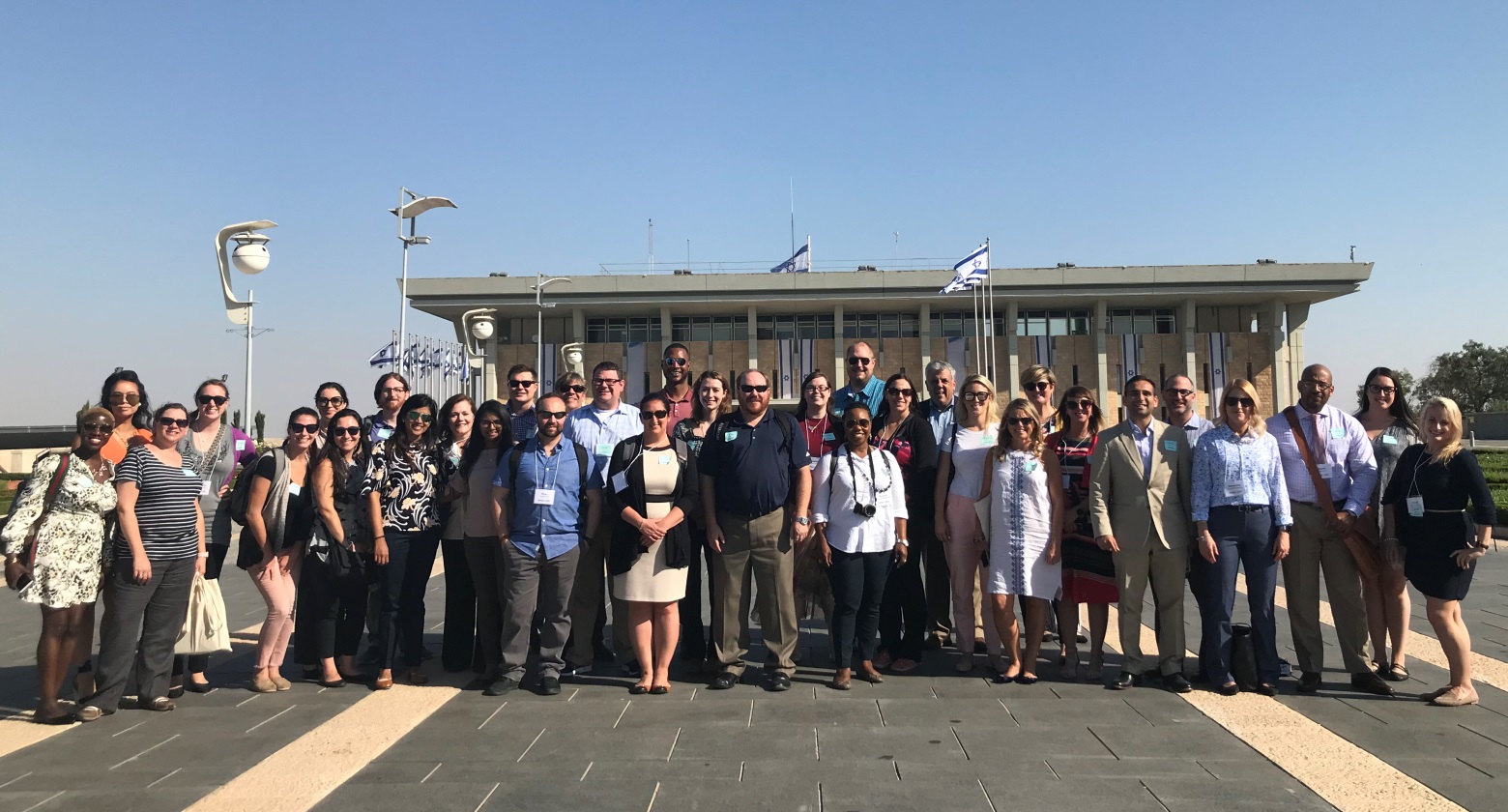This is the third of three blogs about the experiences of 30 students in the Milken Institute School of Public Health at the George Washington University’s MHA@GW program during an immersion experiences in Israel. The tour was organized and led by this blog’s author, Leonard H. Friedman, PhD, FACHE, director of the MHA@GW program. You can find his first blog here and the second blog here.This blog describes the final days of our Executive MHA immersion program in Israel this year, and some closing reflections.ThursdayWe spent our entire day at Hadassah Ein Kerem Medical Center in Jerusalem. Our first speaker was Professor Ronit Calderon, Director of the National Program for Quality Indicators in Community Health within Hebrew University Hadassah Braun School of Public and Community Medicine. She described her work helping to develop a nation-wide program for quality measures regardless of the healthcare organization. Following Professor Calderon, David Chinitz, Professor of Health Policy at the Hebrew University Hadassah Braun School of Public and Community Medicine, who helped us the Immersion experience, shared his perspective on developing meaningful hospital quality measures. Our students were then taken on a tour of Hadassah Ein Kerem along with the synagogue inside the hospital that features 12 stained glass windows designed and produced by the well-known modern artist, Marc Chagall. A particularly interesting part of the tour was through the trauma unit and a discussion of how the hospital can quickly be configured to accommodate mass casualty events. After meeting with the hospital directorate of Hadassah, Professor Shuli Bramli joined us to discuss health insurance and the growing level of private health care in Israel. At the end of the day, several students asked to be dropped off at Yad Vashem - The World Holocaust Remembrance Center.FridayOur final day in Israel had two goals. After arriving at the Hebrew University Hadassah Braun School of Public Health and Community Medicine, we were joined by Dr. Matan Cohen. Dr. Cohen is a practicing family physician with Clalit Health Services and has an appointment with the Hebrew University School of Medicine. His role was to discuss the HMO networks and choices available to persons in Israel with respect to obtaining care within the various HMO’s. Our final external speaker was Rabbi Yuval Cherlow who for several years served on the committee that considered requests to add additional coverage to the basket of services mandated by the Israel Health Insurance Law. His conversation centered on the ethical concerns of adding new benefits to the basket. Given that in consideration of the start of Shabbat which begins at sundown on Friday, we ended early in the afternoon and gave students the remainder of the day to themselves.Final ReflectionsAll the students, staff and faculty will remember this Immersion in their own unique way. Each day brought something new and different. For me, two things were particularly important. The first is that every health system reflects the values and culture of the people in that nation. While the week after we departed, the Knesset passed the Basic Law: Israel as the Nation-State of the Jewish People, Israel remains a complex and diverse nation. One theme that came up repeatedly was that of the resilience of the Nation to hold together in the face of extreme political and military pressure. While the Israeli health system is not perfect, the willingness to make health care a basic right guaranteed to all citizens and permanent residents speaks to the value placed on keeping people healthy and assuring access to health services.The final reflection is my pleasure and gratitude at getting to spend a week overseas with a talented and dedicated group of students. I am optimistic that upon returning home, everyone was inspired to reflect on their experience and to consider how their organizations could implement some of the best practices we saw on display. This week with our MHA@GW students left me confident that our future health care leaders have the wisdom and insight needed to be highly effective in their respective organizations. It was my honor and privilege to participate in this life affirming experience.Leonard H. Friedman is a Professor in the Department of Health Policy and Management and is the Director of the Executive Master of Health Services Administration (MHA@GW) program. Dr. Friedman is a Fellow in the American College of Healthcare Executives and an expert on the mechanisms of organizational change and strategic decision-making in health service organizations. He joined GW SPH in 2008 from Oregon State University, where he was professor in the Department of Public Health and coordinator of the school's health management and policy programs.
Blog: Learning About Health Management and Policy in Israel (3 of 3)
August 21, 2018


